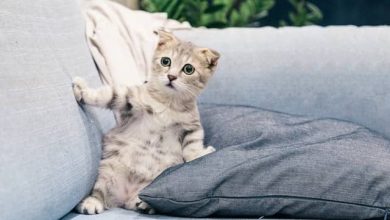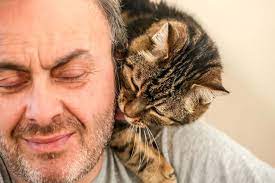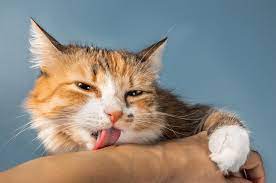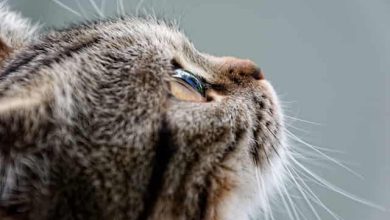Do Cats Care About Their Kittens
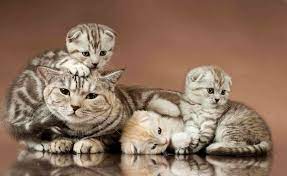

Cats are known for their independent and solitary nature, but when it comes to their kittens, their behavior takes a different turn. Maternal care is essential for the survival and well-being of newborn kittens. In this article, we will explore the depth of a cat’s care for its kittens and understand the various aspects of maternal behavior.
Importance of Maternal Care in Kittens life
Maternal care plays a vital role in the early stages of a kitten’s life. A mother cat provides warmth, protection, and nourishment to her offspring. This care is crucial for their physical and emotional development. Without proper maternal care, kittens may face difficulties in growth and face increased vulnerability to health issues.
Maternal Bonding of cats with their kittens
Cats exhibit a strong maternal bond with their kittens. The bond starts developing during pregnancy and strengthens after birth. A mother cat forms an emotional connection with her kittens, which leads to a protective and nurturing instinct. This bond ensures the well-being of the kittens and fosters their growth.
Cat Communication
Cats have a unique way of communicating with their kittens. They employ a combination of vocalizations and body language to convey messages and establish social interactions.
Vocalizations
Mother cats use a range of vocalizations to communicate with their kittens. Soft purring sounds signify comfort and safety, while gentle meowing encourages exploration and play. Distressed or aggressive vocalizations indicate a potential threat or a need for protection.
Body Language of cats
Cats rely heavily on body language to express their emotions. A mother cat uses subtle gestures like licking, nuzzling, and gentle headbutts to show affection and reassurance. She may also employ postures like crouching or arching her back to communicate dominance or submission.
Nursing and feeding of cats to their kittens
Nursing is a fundamental aspect of maternal care. Mother cats produce milk to feed their kittens, ensuring their nutritional needs are met. The act of nursing also creates a bonding experience between the mother and her offspring.
Protectiveness and Guidance
Mother cats exhibit a remarkable level of protectiveness towards their kittens. They keep a watchful eye, ensuring their safety from potential dangers. As the kittens grow, the mother gradually allows them to explore their surroundings while keeping a vigilant presence. She offers guidance, teaching them essential skills for survival.
Developmental Stages
Maternal care extends throughout the developmental stages of the kittens. From birth to weaning, a mother cat adapts her care to suit the changing needs of her offspring. She provides warmth, cleanliness, and socialization, which are crucial for their healthy development.
Weaning Process
Weaning marks a significant transition in the mother-offspring relationship. As the kittens grow, the mother introduces solid food and reduces nursing sessions. This gradual process allows the kittens to develop independent feeding skills.
Mother-Offspring Relationship
The mother-offspring relationship in cats is complex and multifaceted. While the level of care varies among individual cats, the bond between a mother cat and her kittens generally remains strong. Even after weaning, the mother often maintains a connection with her grown-up offspring.
See also: When Do Kittens Lose Their Teeth?
Factors Influencing Maternal Care of cats with their kittens
Several factors influence a cat’s maternal behavior. These include genetics, experience, hormonal changes, and the environment. Some cats may exhibit exceptional mothering skills, while others may require additional support or guidance.
Paternal Care in Cats
While maternal care is more pronounced, some male cats also display paternal instincts. Although not as common as maternal care, paternal care involves providing protection and occasionally assisting in grooming and upbringing.
Conclusion
Cats indeed care deeply about their kittens. Maternal care is a crucial aspect of a cat’s life, ensuring the survival and well-being of the newborns. Through communication, nurturing, and protection, mother cats play a vital role in the development of their kittens, creating a strong bond that lasts beyond the early stages of life.
FAQs about Do cats care about their kittens
Do all cats exhibit the same level of maternal care?
While most cats exhibit maternal care, the level and intensity may vary among individuals. Some cats show exceptional caregiving skills, while others may require additional support or guidance.
How long does the mother cat nurse her kittens?
The nursing period typically lasts for about 4-6 weeks. However, some mother cats may start introducing solid food earlier, gradually weaning their kittens.
Can a cat become a good mother without prior experience?
Yes, cats can become good mothers even without prior experience. However, previous experience with litters can enhance a cat’s caregiving abilities and make her more adept at raising kittens.
What can I do to support a mother cat in caring for her kittens?
Providing a safe and comfortable environment, ensuring a nutritious diet for the mother cat, and monitoring the kittens’ health are essential ways to support a mother cat in caring for her kittens. Consulting with a veterinarian for guidance is recommended.
See also: Why Is My Cat’s Eye Watering and Squinting?
Are there any risks associated with separating kittens from their mother too early?
Yes, separating kittens from their mother too early can have negative consequences. Kittens rely on their mother for nourishment, socialization, and learning important skills. Early separation can hinder their physical and emotional development. It is generally recommended to wait until the kittens are at least 8-10 weeks old before considering separation.

